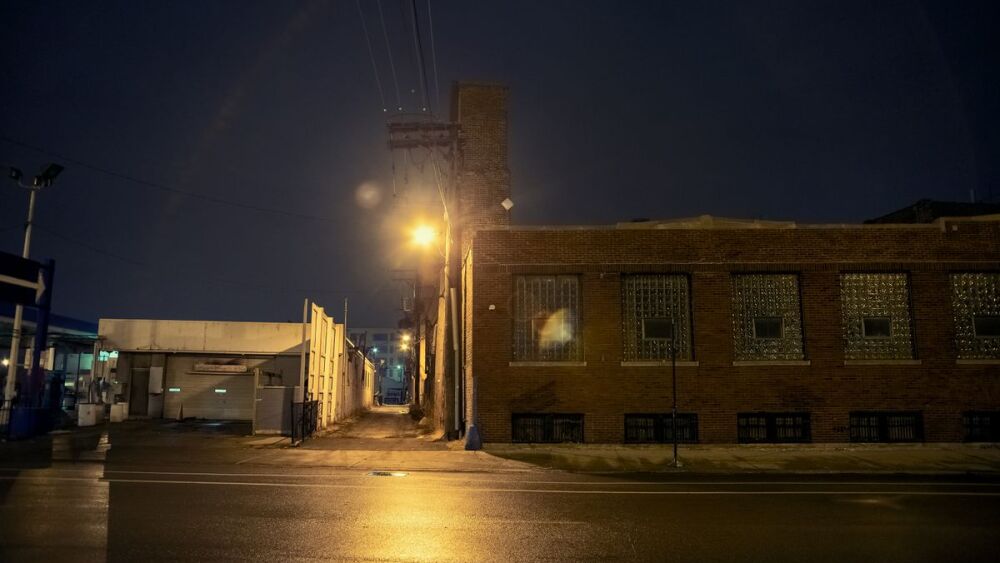Download this week’s episode on Apple Podcasts, Amazon Music, Stitcher, Spotify or via RSS feed.
Every cop in every city can name a dozen spots within their jurisdiction that might call a hot spot or the place where drugs are sold, burglaries occur, or maybe where the next shooting will happen. It may not be so easy to articulate why, off-hand, but concepts like Crime Prevention Through Environmental Design (CPTED), and of course, crime maps can help.
In this episode of the Policing Matters podcast, host Jim Dudley speaks with Dr. Tamara Herold, an associate professor of criminal justice at the University of Nevada, Las Vegas, and senior research advisor at the National Institute of Justice, about her background in crime science and environmental criminology and her research into place-based violence.
Her publications translate theory and research evidence into practice and policy. Her book, “Preventing Crowd Violence,” has been translated into two foreign languages. She was recently featured in Police1’s 23 on 2023: A police leadership playbook.
Top quotes from this episode
- “Instead of asking ‘Why does gun violence concentrate in some locations and not others?’ we started with a different question. We asked, ‘Why does gun violence always concentrate in the same locations over time?’”
- “Patrol officers can identify so many of these locations and so can community members. The community can povide all sorts of insight as they are watching what the offenders are doing in their communities every day.”
- “Hot spots policing can be very effective. Cops count. When police are present, we can have a significant deterrant effect. But what happens if we oversaturate a neighborhood and are not paying attention to what we are doing when we are sending officers into these locations, we can really strain police-community relationships.”
- “These same micro hot spot locations that are disproportionately impacting residents and business owners in these locations also negatively impact our officers. We are asking our officers to go back into these persistent hot spots day after day without addressing the underlying conditions. From an officer wellness and safety perspective, this does not make sense.”
Additional resources on this topic
- Experts: Place-based strategies are effective, central to police reform
- How Las Vegas police helped a blighted area rise from the ashes
- Presentation: Place Network Investigations
- Cincinnati spending $1.5M to expand a violence hot spot reduction program
About our guest
Tamara D. Herold received her Ph.D. in criminal justice from the University of Cincinnati. She is an associate professor of criminal justice at the University of Nevada, Las Vegas, and a senior research advisor at the National Institute of Justice.
She uses the crime science perspective to study the criminogenic impact of the design and management of places, and crowd dynamics that lead to violence. Her research and teaching projects involve working with police, private security, and stadium/venue operators. She has authored scholarly articles, books, technical reports and problem-oriented policing guides sponsored by the U.S. Department of Justice.
Herold co-developed the nationally recognized violence reduction strategy P.I.V.O.T. (Place-based Investigations of Violent Offender Territories). P.I.V.O.T.’s design is to stop shootings in chronically violent urban locations. Police, city departments and local communities work together to disrupt opportunities for violence, using a problem-oriented approach that focuses on uncovering and dismantling place networks that permit violent activities. In 2017, P.I.V.O.T. was awarded the international Herman Goldstein Award for Excellence in Problem-Oriented Policing.
Connect with Dr. Herold
About our sponsor
This episode of the Policing Matters Podcast is brought to you by Lexipol, the experts in policy, training, wellness support and grants assistance for first responders and government leaders. To learn more, visit lexipol.com.
Rate and review the Policing Matters podcast
Enjoying the show? Please take a moment to rate and review us on Apple Podcasts. Contact the Policing Matters team at policingmatters@police1.com to share ideas, suggestions and feedback.




